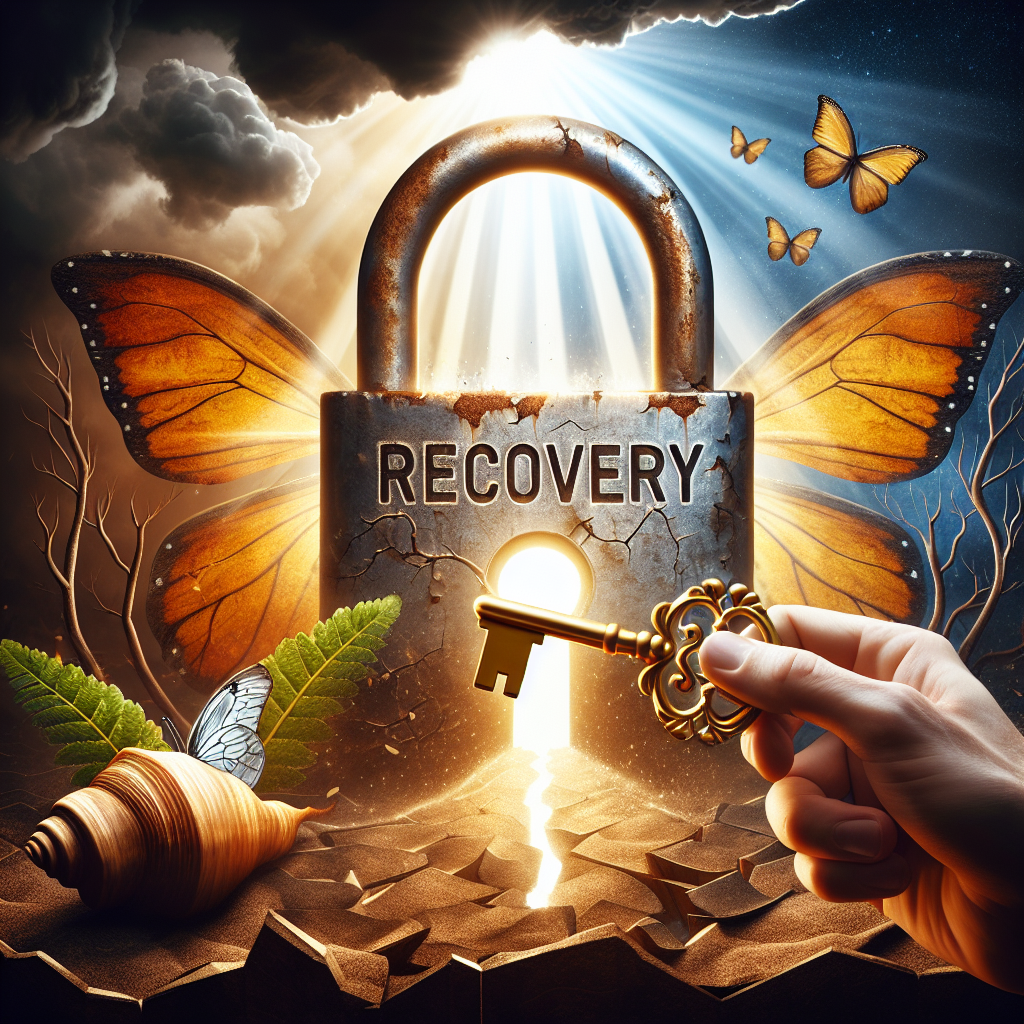-
Table of Contents

“Honesty: The Catalyst for True Recovery and Personal Growth”
Introduction
Honesty: The Key to Unlocking Personal Transformation in Recovery
In the journey of recovery, whether from addiction, trauma, or any form of personal struggle, honesty stands as a cornerstone for genuine transformation. It is the act of being truthful with oneself and others, which paves the way for self-awareness, acceptance, and growth. Embracing honesty allows individuals to confront their realities, acknowledge their flaws, and take responsibility for their actions. This transparency fosters trust and builds a solid foundation for meaningful relationships and support systems. By committing to honesty, individuals can break free from the chains of denial and deception, ultimately leading to profound personal change and a more authentic, fulfilling life.
The Role of Honesty in Personal Growth During Recovery
Honesty: The Key to Unlocking Personal Transformation in Recovery
In the journey of recovery, whether from addiction, trauma, or any other life-altering challenge, personal growth is an essential component. At the heart of this transformative process lies the principle of honesty. Embracing honesty is not merely about telling the truth to others; it is about being truthful with oneself. This self-honesty is the cornerstone upon which personal growth is built, enabling individuals to confront their realities, accept their pasts, and pave the way for a healthier future.
To begin with, honesty fosters self-awareness. When individuals in recovery commit to being honest with themselves, they start to recognize their behaviors, thoughts, and emotions more clearly. This self-awareness is crucial because it allows them to identify the root causes of their struggles. For instance, someone recovering from addiction might realize that their substance use was a way to cope with unresolved emotional pain. By acknowledging this truth, they can begin to address the underlying issues rather than merely treating the symptoms. This deeper understanding is the first step towards meaningful change.
Moreover, honesty cultivates accountability. When individuals are honest about their actions and their consequences, they take responsibility for their lives. This sense of accountability is empowering because it shifts the focus from external circumstances to personal choices. It encourages individuals to stop blaming others or their environment for their problems and instead, take proactive steps towards improvement. For example, a person in recovery might admit to themselves that they have been avoiding certain responsibilities. This admission can lead to a commitment to change their behavior, thereby fostering personal growth.
In addition to self-awareness and accountability, honesty also enhances relationships. Recovery is often a communal journey, involving support from family, friends, and professionals. When individuals are honest with those around them, it builds trust and strengthens these relationships. Trust is a vital component of any support system, as it ensures that individuals feel safe and understood. This sense of security can provide the emotional support needed to navigate the challenges of recovery. Furthermore, being honest with others can inspire them to be honest in return, creating a positive cycle of mutual support and understanding.
Transitioning from the internal benefits of honesty to its external impacts, it is important to recognize that honesty also promotes resilience. Recovery is rarely a linear process; it involves setbacks and relapses. However, when individuals are honest about their struggles, they are better equipped to learn from their experiences. Instead of hiding their mistakes or feeling ashamed, they can openly acknowledge them and seek the necessary help. This openness not only aids in overcoming immediate challenges but also builds resilience for future obstacles. It teaches individuals that setbacks are not failures but opportunities for growth and learning.
Furthermore, honesty in recovery can lead to a profound sense of authenticity. As individuals strip away the layers of denial and self-deception, they begin to discover their true selves. This authenticity is liberating because it allows them to live in alignment with their values and beliefs. It fosters a sense of inner peace and fulfillment that is often missing when one is entangled in dishonesty. Living authentically can also inspire others on their recovery journeys, creating a ripple effect of positive change.
In conclusion, honesty is a powerful catalyst for personal growth during recovery. It nurtures self-awareness, accountability, and resilience, while also strengthening relationships and fostering authenticity. By embracing honesty, individuals can unlock their potential for transformation and pave the way for a healthier, more fulfilling life. The journey of recovery is undoubtedly challenging, but with honesty as a guiding principle, it becomes a path of profound personal growth and lasting change.
How Embracing Honesty Can Accelerate Your Recovery Journey
Embracing honesty is a transformative act that can significantly accelerate your recovery journey. When you commit to being honest with yourself and others, you lay the foundation for genuine healing and personal growth. The path to recovery is often fraught with challenges, but honesty serves as a guiding light, illuminating the way forward and helping you navigate the complexities of this journey.
To begin with, honesty fosters self-awareness, which is crucial for recovery. By acknowledging your struggles, weaknesses, and mistakes, you gain a clearer understanding of the areas that need attention and improvement. This self-awareness allows you to confront the root causes of your issues rather than merely addressing the symptoms. For instance, if you are recovering from addiction, admitting the extent of your dependency is the first step toward seeking appropriate help and support. Without this level of honesty, you may find yourself stuck in a cycle of denial and relapse.
Moreover, honesty strengthens your relationships with others, which is vital for a successful recovery. When you are open and truthful with your loved ones, you build trust and create a support network that can provide encouragement and accountability. This support network can be a lifeline during difficult times, offering emotional and practical assistance when you need it most. Conversely, dishonesty can erode trust and isolate you from those who care about you, making the recovery process even more challenging.
In addition to enhancing self-awareness and relationships, honesty also promotes emotional healing. Bottling up emotions or hiding the truth can lead to increased stress, anxiety, and depression. By being honest about your feelings and experiences, you allow yourself to process and release these emotions in a healthy way. This emotional release can be incredibly liberating, paving the way for a more balanced and peaceful state of mind. Furthermore, honesty encourages vulnerability, which is a powerful catalyst for personal growth. When you allow yourself to be vulnerable, you open up to new perspectives and experiences, fostering resilience and adaptability.
Another significant benefit of embracing honesty in your recovery journey is the development of integrity and self-respect. When you consistently choose to be honest, you align your actions with your values, creating a sense of inner harmony and authenticity. This alignment boosts your self-esteem and confidence, empowering you to make positive choices and stay committed to your recovery goals. Additionally, living with integrity can inspire others around you, creating a ripple effect of positive change within your community.
It is important to recognize that embracing honesty is not always easy. It requires courage and a willingness to face uncomfortable truths. However, the rewards far outweigh the challenges. By committing to honesty, you take control of your narrative and become an active participant in your recovery journey. This proactive approach can lead to profound personal transformation, helping you build a fulfilling and meaningful life beyond recovery.
In conclusion, honesty is a powerful tool that can accelerate your recovery journey by fostering self-awareness, strengthening relationships, promoting emotional healing, and developing integrity. While the path to recovery may be difficult, embracing honesty can provide the clarity, support, and empowerment needed to overcome obstacles and achieve lasting change. By making honesty a cornerstone of your recovery, you unlock the potential for true personal transformation and set the stage for a brighter, healthier future.
Q&A
1. **Question:** How does honesty contribute to personal transformation in recovery?
**Answer:** Honesty allows individuals to confront their true feelings, behaviors, and the impact of their actions, which is essential for genuine self-assessment and growth in the recovery process.
2. **Question:** What role does honesty play in building trust during recovery?
**Answer:** Honesty fosters trust between individuals in recovery and their support networks, creating a foundation for open communication, mutual support, and accountability.
Conclusion
Honesty is fundamental in the journey of personal transformation during recovery. It serves as the cornerstone for building trust, fostering self-awareness, and promoting genuine healing. By embracing honesty, individuals can confront their past behaviors, acknowledge their struggles, and take responsibility for their actions. This transparency not only aids in personal growth but also strengthens relationships with others, creating a supportive environment essential for sustained recovery. Ultimately, honesty empowers individuals to live authentically, paving the way for lasting change and a healthier, more fulfilling life.



